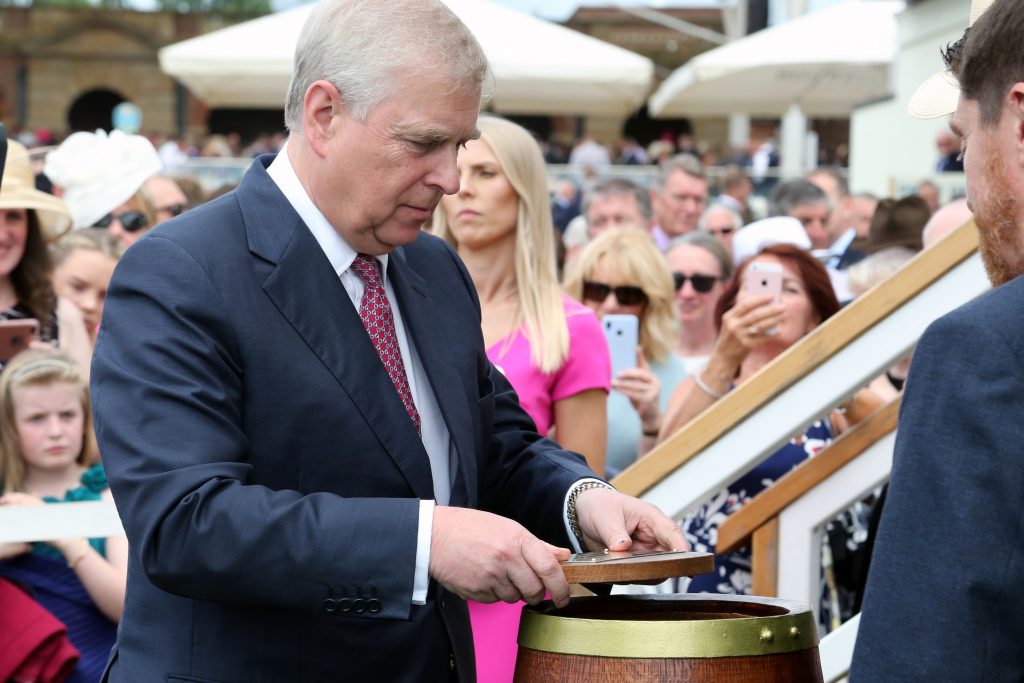I probably shouldn’t throw in on this as I really don’t have a dog in the fight. I am not a subject of the United Kingdom, I am of Irish, not English, descent, and I am a practicing (and will continue to practice until I get it right) Roman Catholic.
So naturally, I will comment on something the archbishop of Canterbury, Justin Welby, said, the leader of the Church of England. No need for a history lesson here, but quickly, the Henry VIII-founded church broke with Rome, and made the monarch the head of this church and the archbishop of Canterbury its most senior cleric.
Though technically the British monarch is the head of the Church of England, over the past centuries, the theological heavy lifting has been left exclusively in the hands of the archbishop, so whenever he says anything of import, it becomes news.
The rapidly declining membership in the “state” church by the residents of that same state seems to diminish any pronouncements the state making any pronouncement the archbishop of Canterbury may make. But his recent attempt to support the royal family amid its current scandal takes diminishing to the next level: down.
Can’t go into details of this scandal because the details are so tremendously awful, but Prince Andrew’s association with the late accused sexual predator Jeffery Epstein has become a public relation’s Titanic, and it keeps getting worse. The prince has forgotten the first rule of holes: when you find yourself at the bottom one, you must stop digging.
Maybe the archbishop of Canterbury was trying to minister to Prince Andrew; he could certainly use a friend. And I’m happy to give the archbishop of Canterbury the benefit of the doubt that he was making an honest effort to tend to the needs of one of his flock.
But what sounds like mercy on one level sounds like something very different when cross-referenced with the archbishop’s owner’s manual (the Bible).
He recently told the rabid British press to lay off Prince Andrew by saying, “I think to ask that they (the royals) be superhuman saints is not what we should do because nobody is like that. Everybody makes mistakes, everybody is human.”
The answer to the last sentence in this quote is a resounding YES. The answer to the first sentence is not yes. We are all called to be saints — not sunshine saints or good-enough saints — just saints.
We Catholics have a tendency, I know I do, to see our salvation history being played out with a desire to be just good enough for a partial-view room at the purgatory days end. How bad could that be? After all, we know we’re going to get to heaven from there eventually. Good enough, right?
Wrong. Contrary to what the archbishop of Canterbury said, becoming a saint does not require superhuman effort. It requires reliance on God’s grace and trust in his mercy and his love in the most humble and diminutive ways. Then God provides the superhuman attributes.
But Jesus mandates, he insists on striving to sainthood, not striving to just being OK enough. As the archbishop alludes to in his quote, failure to reach sainthood is a daily reality for most of us. But that alone does not mean we should put our hands up, surrender to our baser natures, and just move the goal posts closer.
Old axioms become old axioms because they ring in pitch-perfect harmony to the truth, and none ring so resoundingly as “some of the greatest saints have been the greatest sinners.” But as great a saint as St. Augustine was, would he have ever made the “superhuman” transition from being a world-class sinner if it weren’t for the bishop of Milan, St. Ambrose?
It was St. Ambrose who insisted St. Augustine change his ways, and it was St. Ambrose who planted the seeds in the younger St. Augustine that God’s grace could move mountains.
If St. Ambrose had told St. Augustine not to worry about his debauchery, that it was too unrealistic to ask him to give up such things, we wouldn’t still be reading the “Confessions” and “The City of God,” and heaven would be short a saint.
Maybe suggesting Prince Andrew will right his wayward path, convert to the Catholic Church, and live the remainder of his days in saintly pursuits is a London bridge too far. But with God, nothing is impossible, not even sainthood.
If the likes of a Roman-African playboy who straddled the fourth and fifth centuries, or a thief hanging on a cross for his crimes can make it, there’s hope for us all. We just have to aim as high as possible.

